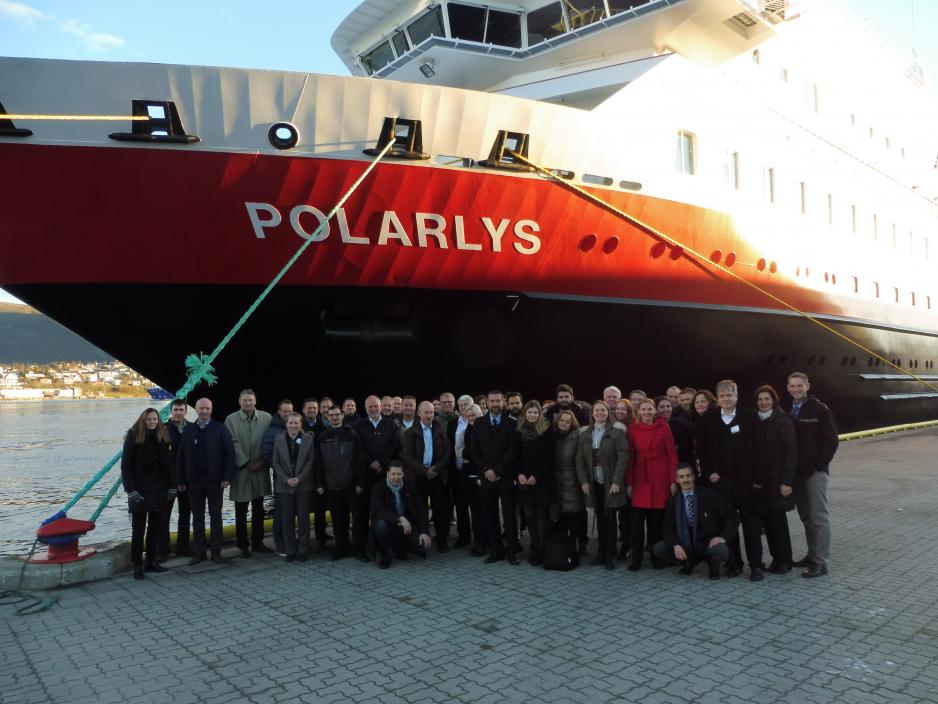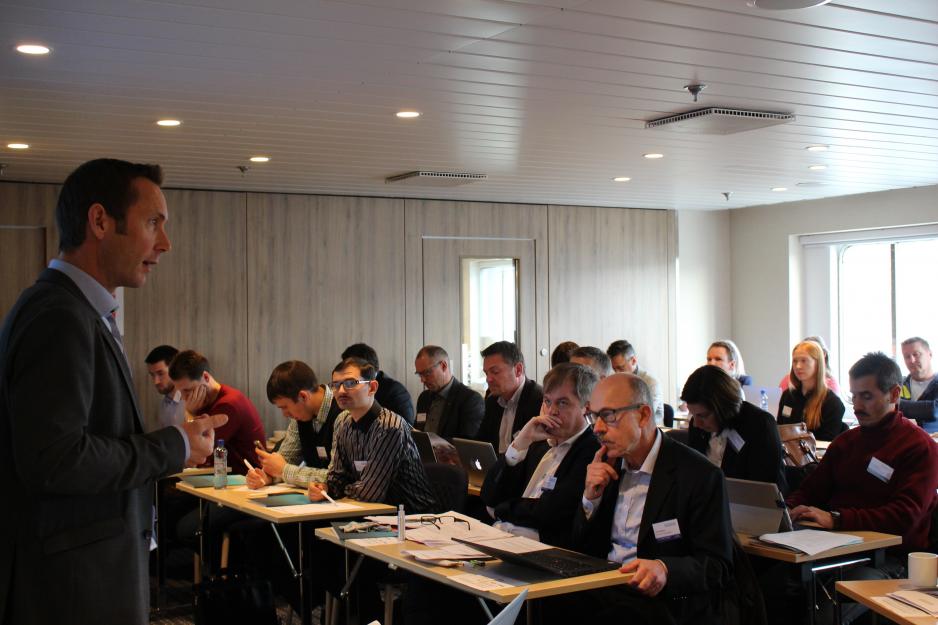Maritime preparedness: Cruising for solutions

Around 60 researchers and practitioners gathered on the coastal steamer MS Polarlys to discuss how international cooperation can strengthen maritime preparedness in the Arctic.
This week, the Hurtigruten coastal steamer sailing from Bodø to Tromsø in Arctic Norway welcomed onboard not only the usual crowd of local travelers and German tourists, but also a group of international experts on maritime preparedness.
Researchers and representatives from relevant authorities boarded the MS Polarlys to participate in the fifth conference organized by the research network Marpart (Maritime Preparedness and International Partnership in the High North). The network, which is led by the High North Center for Business and Governance at Nord University, is a central initiative under Norway’s Arctic Policy.
A priority for Norway
The purpose of the project is to assess the risk of the increased maritime activity in the High North and the challenges this increase may represent for the preparedness institutions in this region.
- The North is at the top of the world, but also at the top of the Norwegian government’s political agenda. It’s all about being a responsible actor as we increase our economic activity in the North, said Trond Gabrielsen, Assistant Director General for Security Policy and the High North at the Norwegian Ministry of Foreign Affairs, as he addressed the participants.
Business as usual with Russia
Participants from all eight Arctic nations were represented at the conference, including Russia. Among other things, the program includes a session on bilateral agreements and cooperation between Norway and Russia within oil spill preparedness. The MFA official reiterated Norway’s standpoint on Arctic cooperation with Russia in the wake of the Ukraine crisis.
- Norway criticizes Russia’s actions, but the cooperation continues as before, said Gabrielsen.
Cooperation in times of crisis
Professor Odd Jarl Borch, leader of the Marpart project, highlights the importance of mutual assistance between Arctic nations.
- The international aspect of preparedness at sea is essential, Borch says.
- Norway is responsible for large and challenging sea areas stretching as far as the North Pole. Lack of infrastructure and great distances makes international cooperation and exchange of knowledge all the more important in times of crisis. This conference gives us the opportunity to sit down with experts and authorities from other countries to identify how we can help each other.

